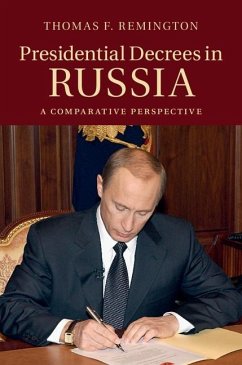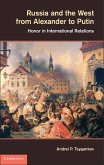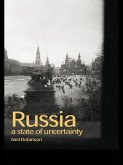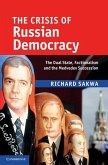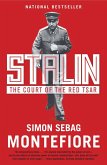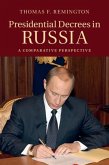The book examines the way Russian presidents Yeltsin, Medvedev, and Putin have used their constitutional decree powers since the end of the Soviet regime. The Russian constitution gives the Russian president extremely broad decree-making power, but its exercise is constrained by both formal and informal considerations. The book compares the Russian president's powers to those of other presidents, including the executive powers of the United States president and those of Latin American presidents. The book traces the historical development of decree power in Russia from the first constitution in 1905 through the Soviet period and up to the present day, showing strong continuities over time. It concludes that Russia's president operates in a strategic environment, where he must anticipate the way other actors, such as the bureaucracy and the parliament, will respond to his use of decree power.
Dieser Download kann aus rechtlichen Gründen nur mit Rechnungsadresse in A, B, BG, CY, CZ, D, DK, EW, E, FIN, F, GR, HR, H, IRL, I, LT, L, LR, M, NL, PL, P, R, S, SLO, SK ausgeliefert werden.

